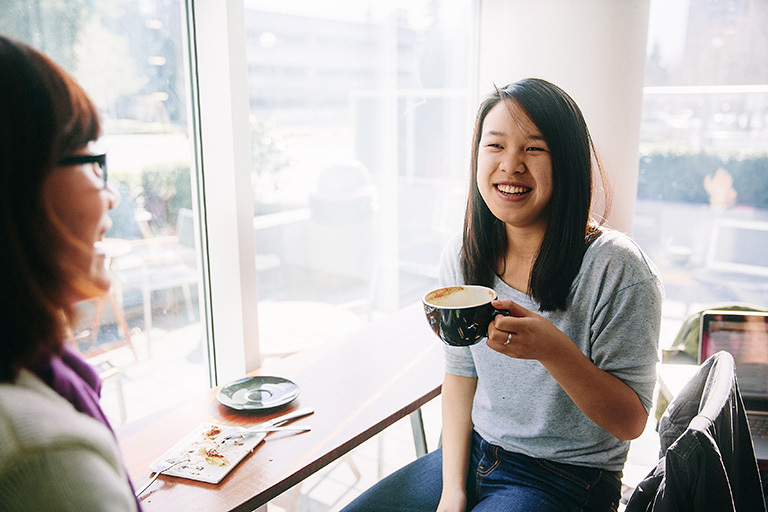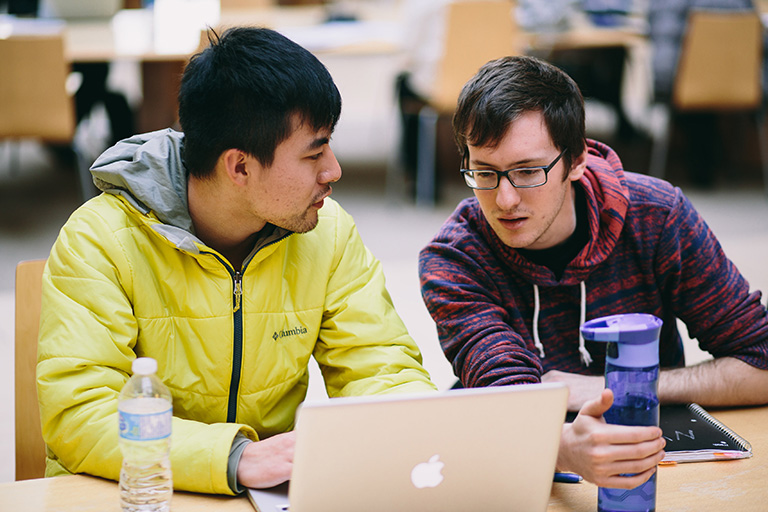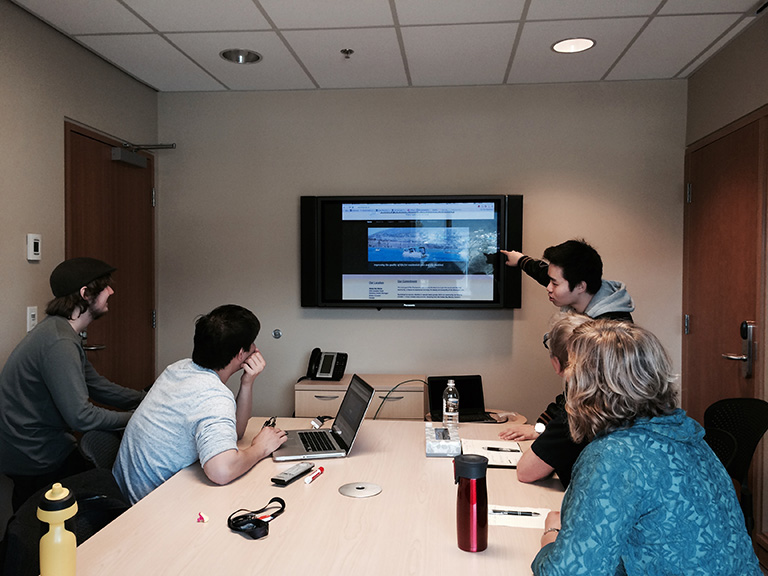Immerse, Learn, Reflect
How do you define experiential learning?
For Taylor Macdougall, it was getting on the Sea to Sky Highway and heading into a region where he could put his learning to the test and in turn, be truly taught and changed by the hands-on experience.
As a third-year student, Bachelor of Social Work at UBC Vancouver, Macdougall took his practicum with the Vancouver Coastal Health (VCH) Mental Health and Addictions Services working in Squamish and surrounding areas.
Relatively new to the West Coast, he’s now “immersed” in the cultures of Vancouver and is particularly drawn to the communities “that dot” the Sea to Sky corridor. The practicum has only deepened his awareness, interest and resolve.
“The time I’ve spent with the indigenous people of these communities and others that occupy these lands, although somewhat limited, has inspired me to not only want of to make this part of BC my home, but also where I hope to practice social work upon my graduation.
“I’m hoping this practicum will allow me the opportunity to lay the foundation for my future learning and practice.”
Exactly, says Centre for Community Engaged Learning (CCEL) Director Susan Grossman: “Experiential learning is a process of learning in which a learner ‘makes meaning’ from his or her direct experience.”
Each year at the Vancouver campus the CCEL supports almost 5,000 students in community-based experiential learning. Allied with a network of academic facilities, Grossman says the goal is to “create discipline-specific community-based experiential learning opportunities that are embedded within or are complementary to degree programs.”
Grossman says experiential learning students must always remain “intentional” to the interests and priorities of the communities. It’s all in the experience, says Grossman: “This ‘boundary crossing’ beyond the university is a physical immersion into communities and requires students to be deeply reflective of themselves, communities, disciplines and the wider world.”
Grossman and Phil Bond, manager of Community Service Learning at the Okanagan campus, agree that true experiential learning doesn’t just drop students into a non-profit community partner and, says Bond, expect the organization ‘to find something for them to do’. It deeply studies the community’s specific needs (e.g. homelessness, addiction, mental illness) and only then matches the students’ skills that can best fill that particular need.
At the Okanagan campus, the Computer Science programs and its first-year Digital Citizenship co-community learning project ‘connected’ with the community, with students developing 115 individual user-friendly computer lessons to help generally older people become more tech savvy. For instance, the hearing-impaired woman taught to use FaceTime, allowing her to ‘talk’ to her friends by lip reading.
Run through the Okanagan Regional Library, the Digital Citizenship program created more demand than it could fill, with participants saying they ‘just needed a young person’ to help them with today’s ubiquitous devices.
Grossman notes that graduates exposed to experiential learning learn leadership, improve their decision-making and ‘real-world’ problem-solving skills and working one-on-one with faculty and community partners, they’re “achieving a strong set of learning skills with an ability to draw on self-knowledge to refine career goals.”
It’s when the students are back on campus, reflecting on how their classroom teaching “flowed” in the real-world community where, says Bond, the deep and lasting transformations happen:
“We don’t believe that students learn just by having an experience. We believe that they learn by reflecting on that experience. It’s also making sure it’s not just about what the university needs, it’s not just about the community needs but it’s making sure we balance it, so it’s a win-win.”
Adds Grossman: The faculty, the community partners and the students are the true teachers and learners. Without them, these experiences would not be possible.”
Read more about
Student LearningRead more Student Learning stories:
- Speak Up, Stand Out
- Webby Worthy
- The Pharma Is In
- Telling the Untold Story
- Fold, Spindle, Mutate
- Bita Imam, Student Extraordinaire
- New Leaders, Better Futures
- Transatlantic Engineering
- UBC and the Special Olympics
- Top Researchers Recognized: UBC’s Young Researchers Shine
- Wade Davis: Between Two Worlds
- Plugging Into Technology, Teaching and the Future
- A Strong Start
- A New Beginning
- Big Mind on Campus
- Scholars In Track Shoes
- UBC Okanagan Votes In Favour of New Library and Learning Space
- Polar Bear Swim Brings Out UBC Spirit
- Sauder Degree Doubles Down
- New Rhodes Scholar Packs For Oxford
- Seeking: Global Change Makers
- Cristiano Ronaldo Joins the Class
- An Extrudingly Good Idea
- Framing the Future
- A Rural Cure
Related Content
"ACHIEVING A STRONG SET OF LEARNING SKILLS WITH AN ABILITY TO DRAW ON SELF-KNOWLEDGE TO REFINE CAREER GOALS."
Campus
OkanaganCampus
Vancouver

